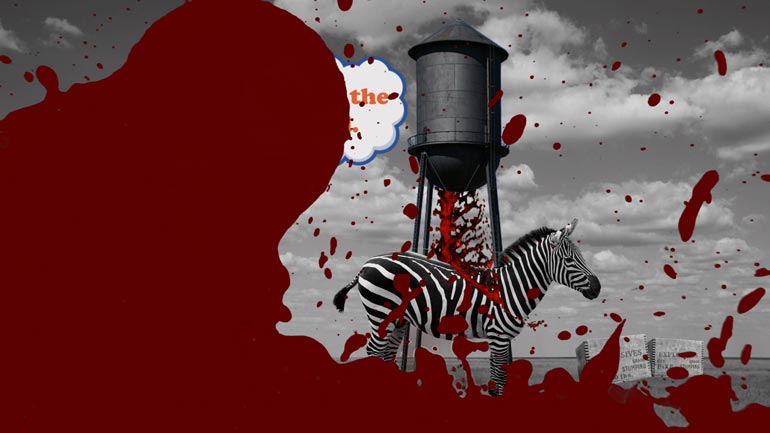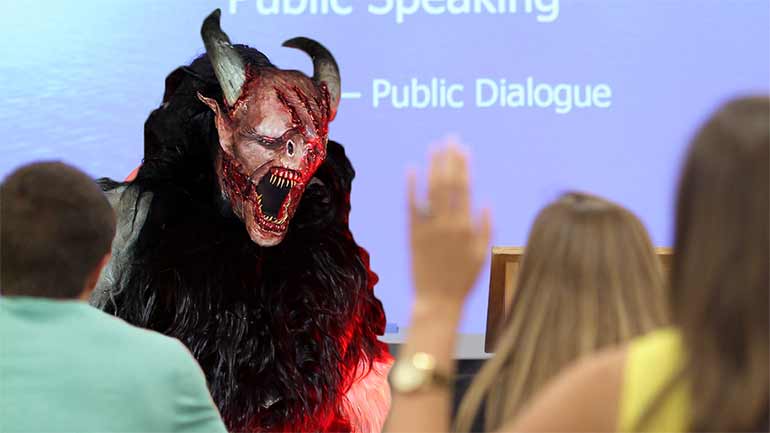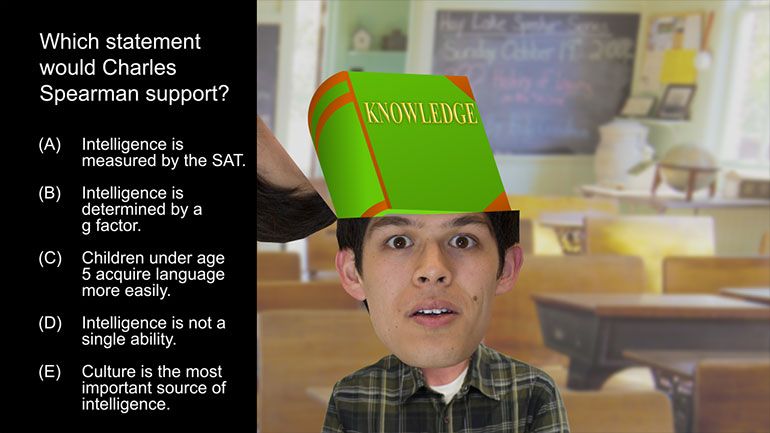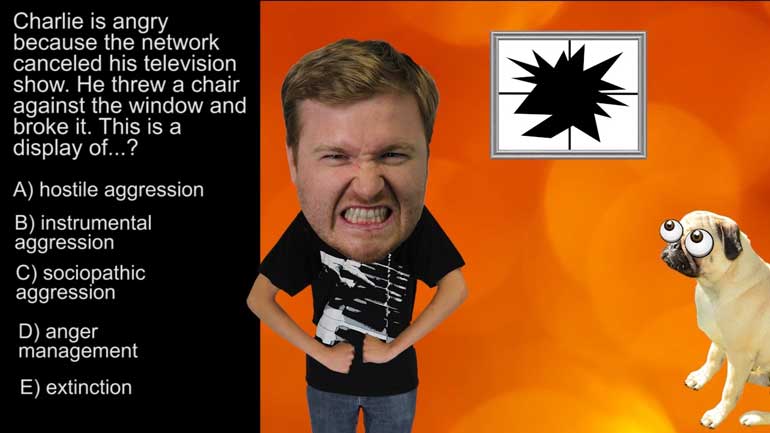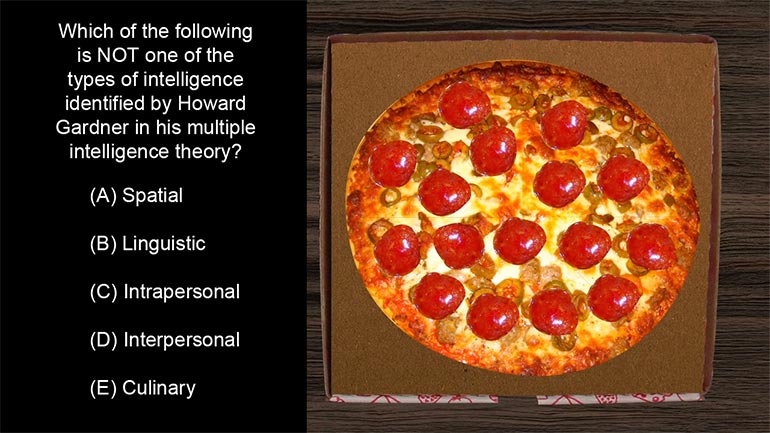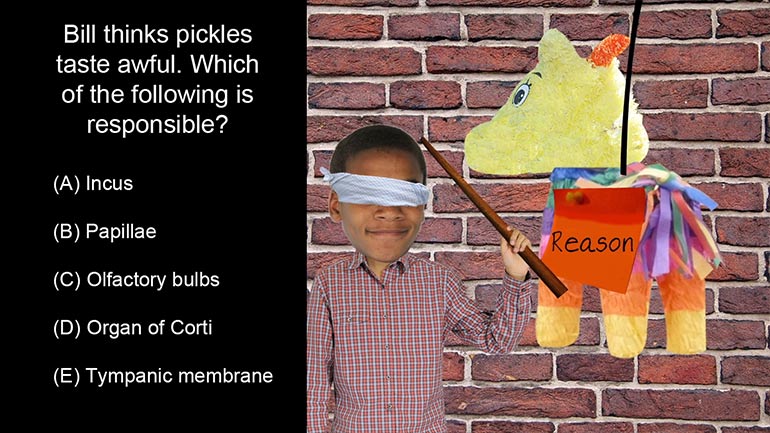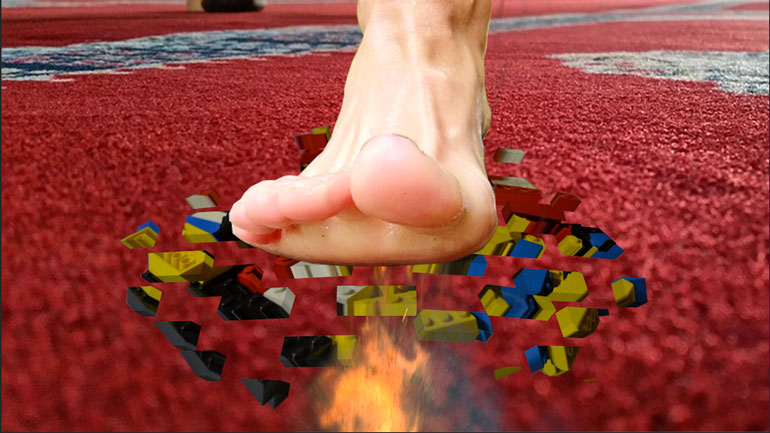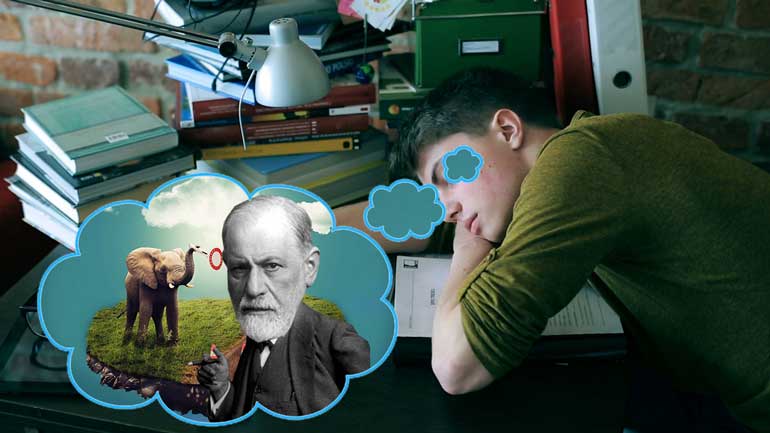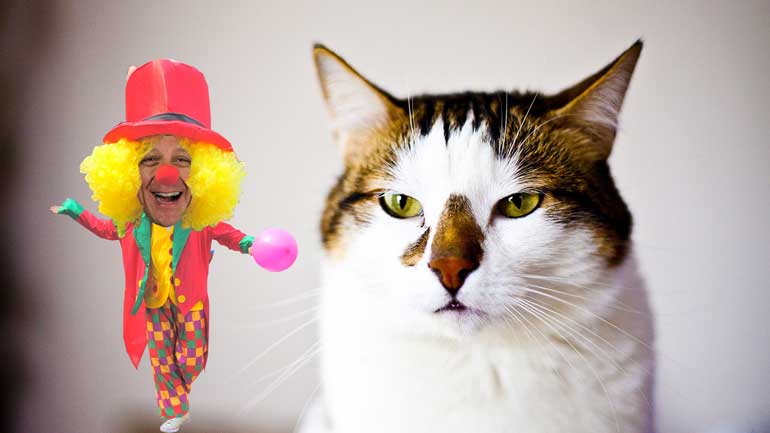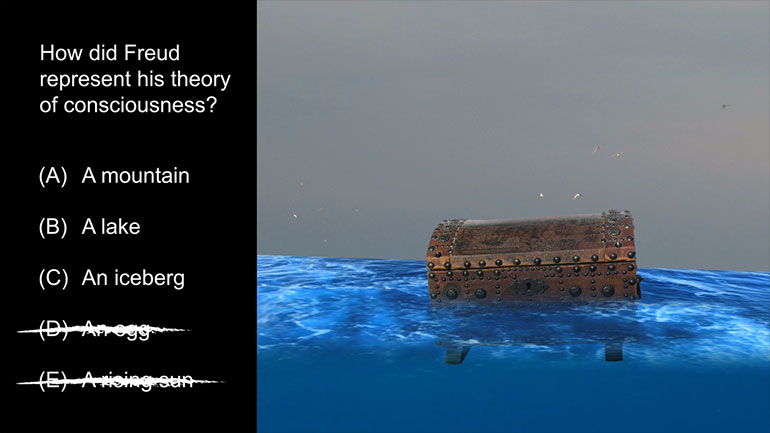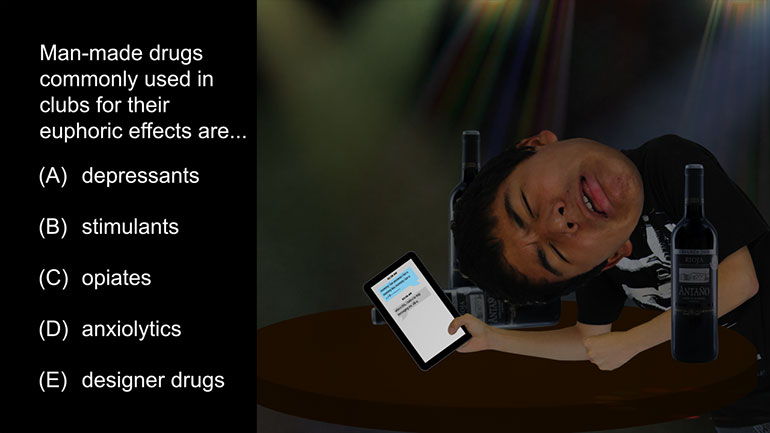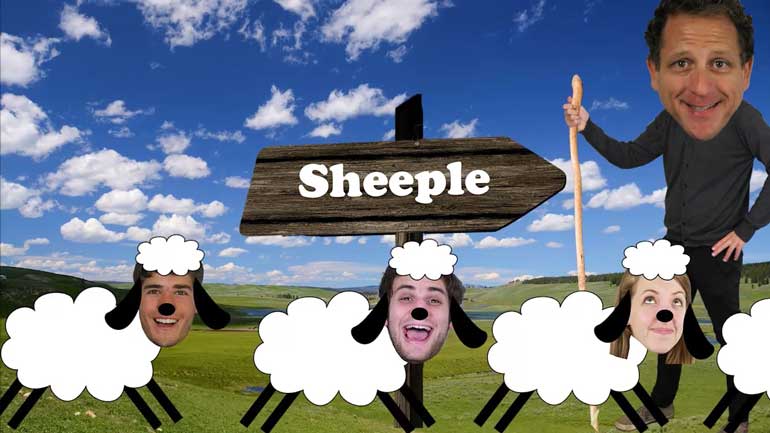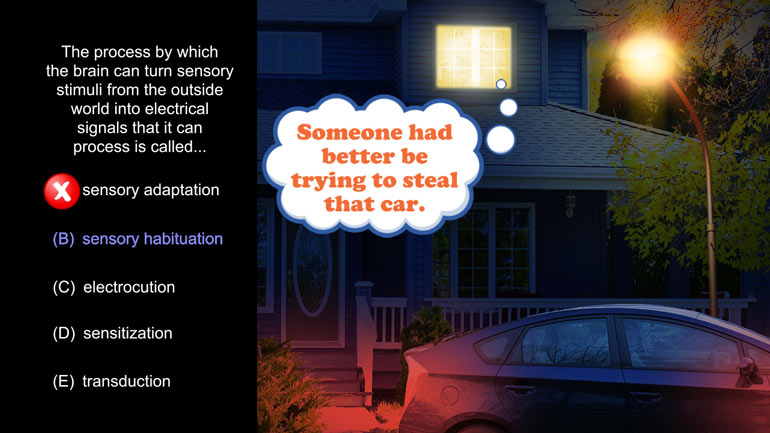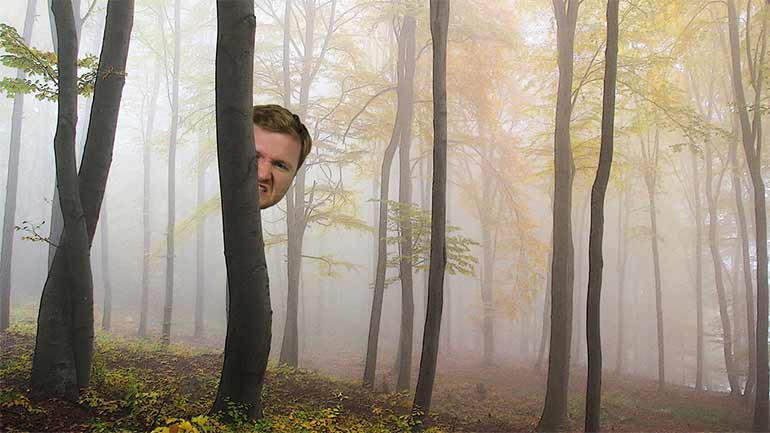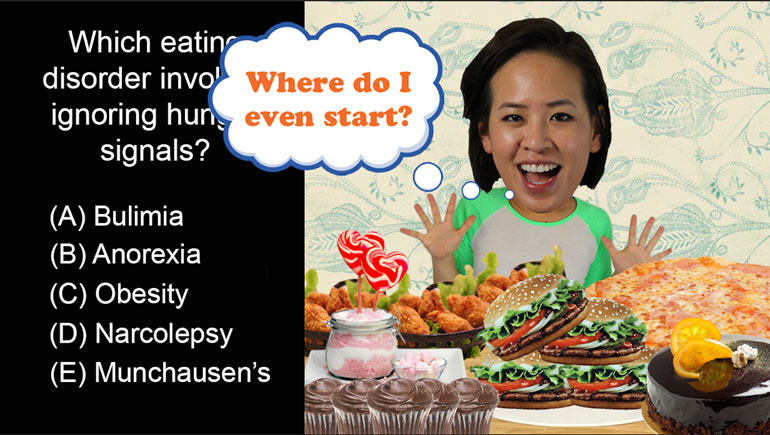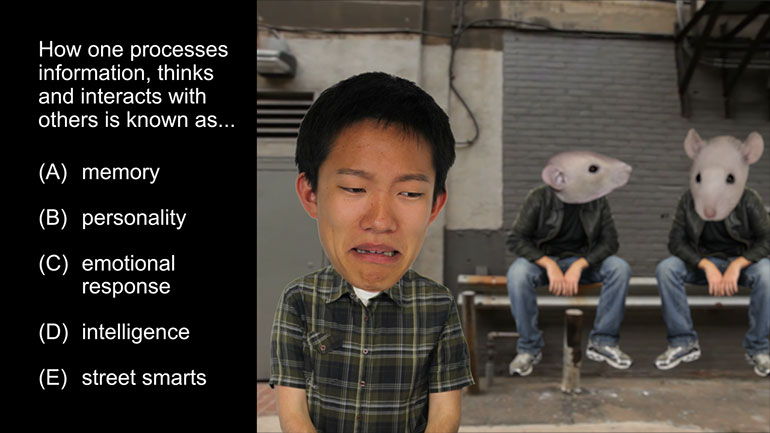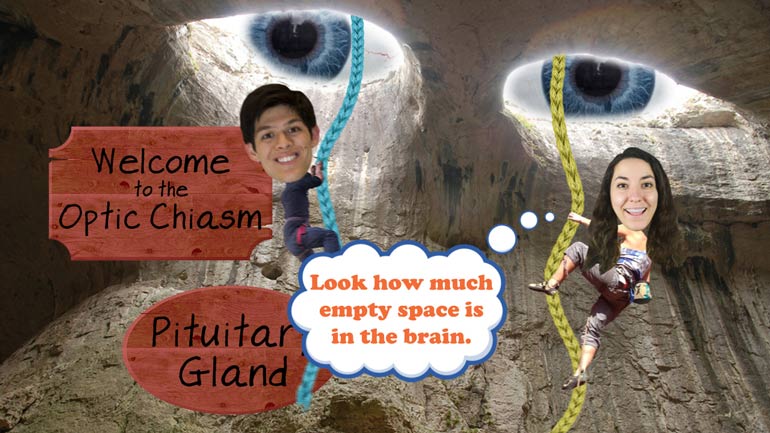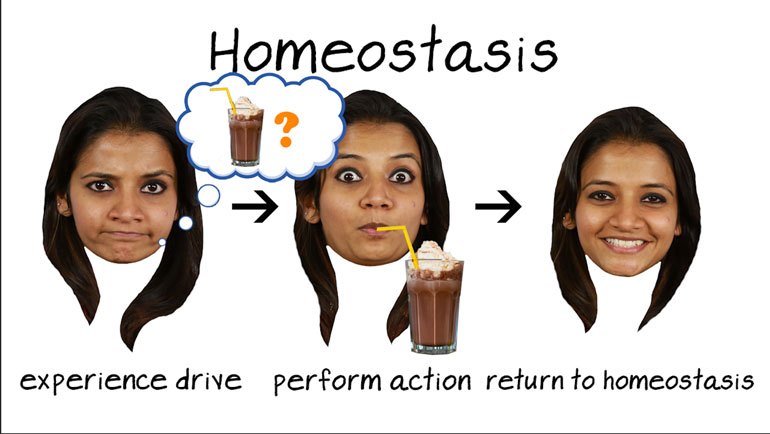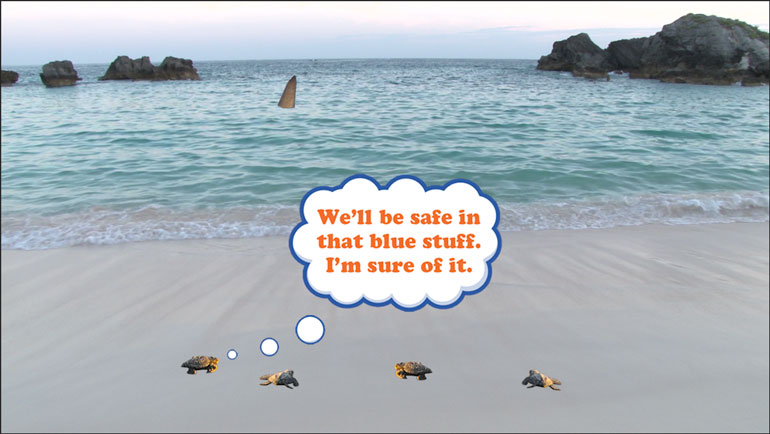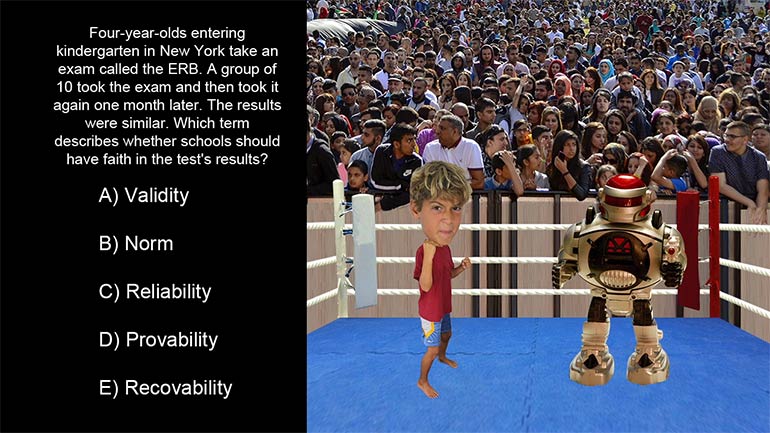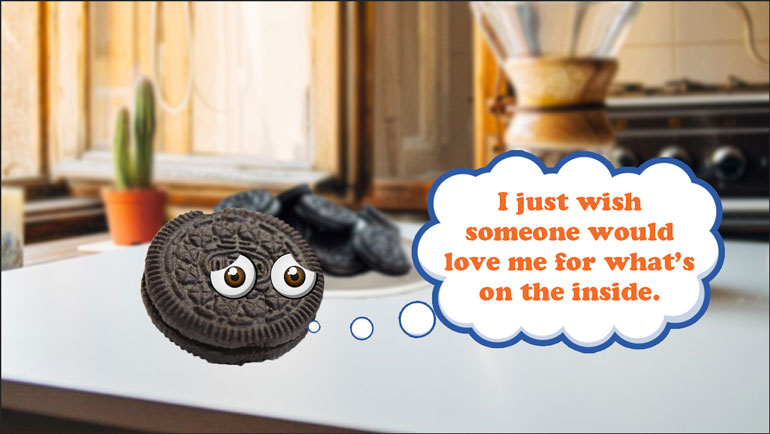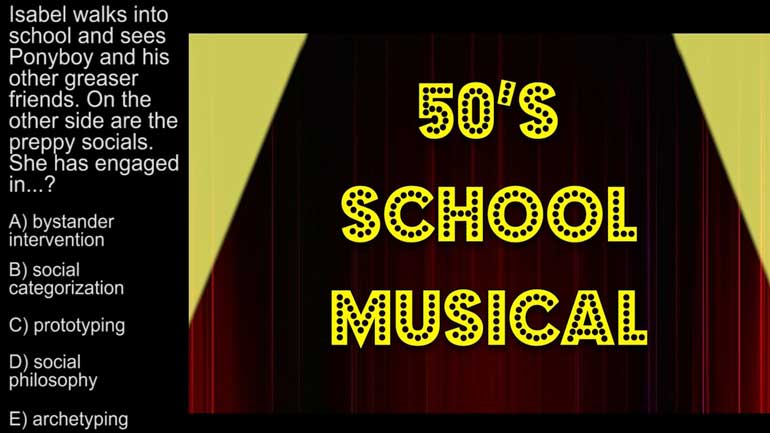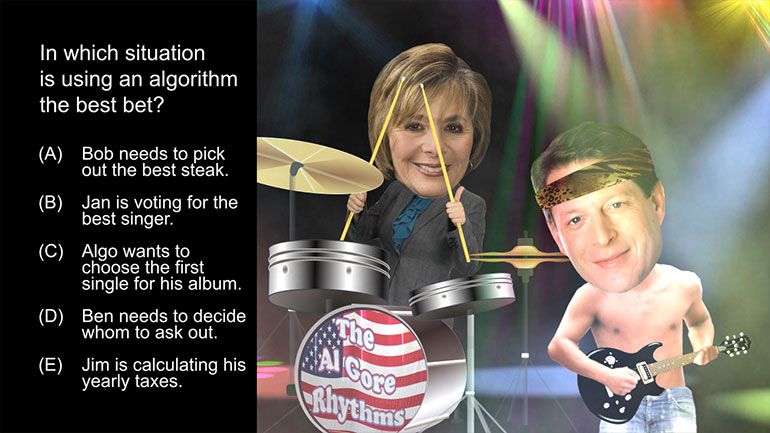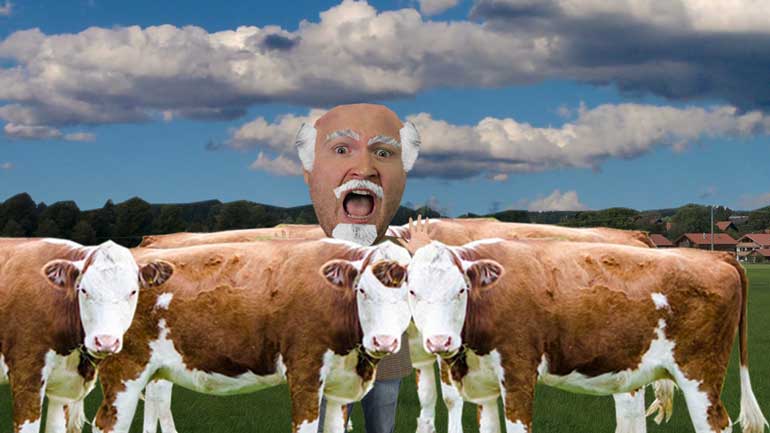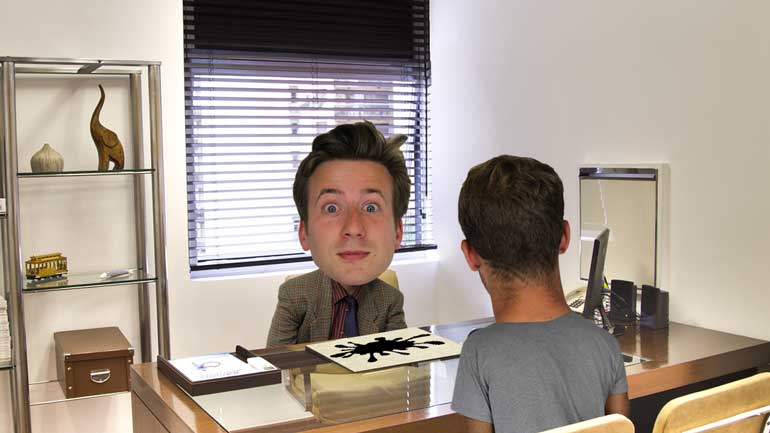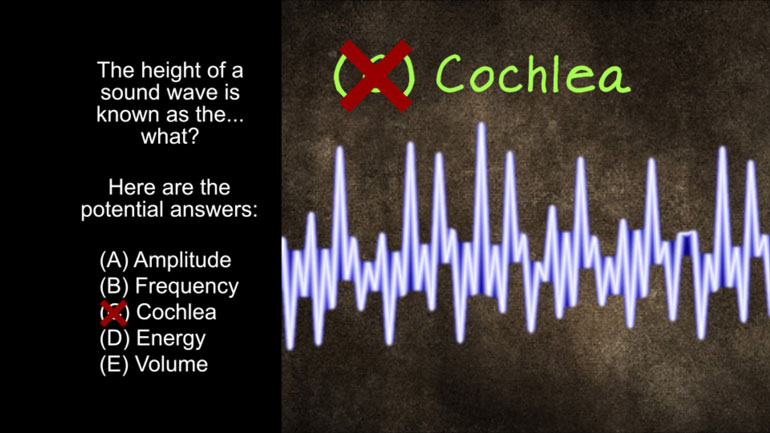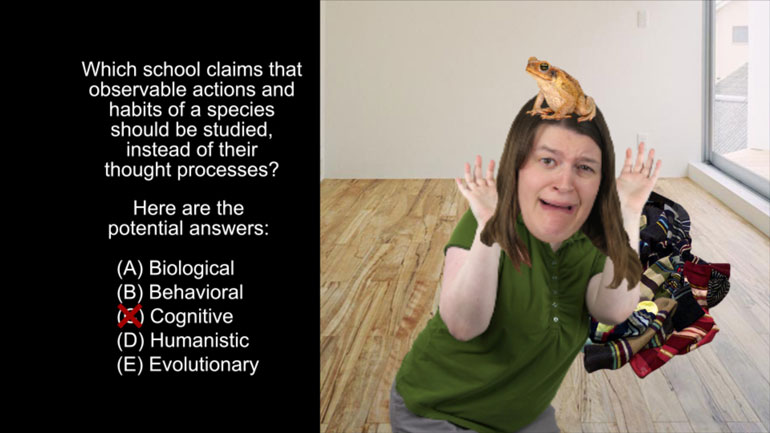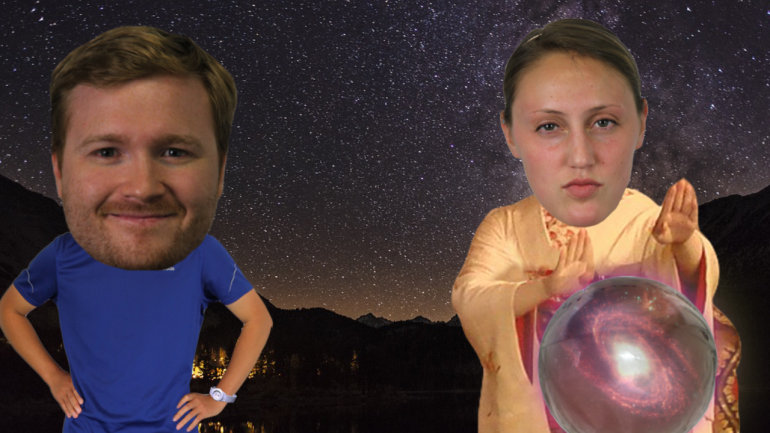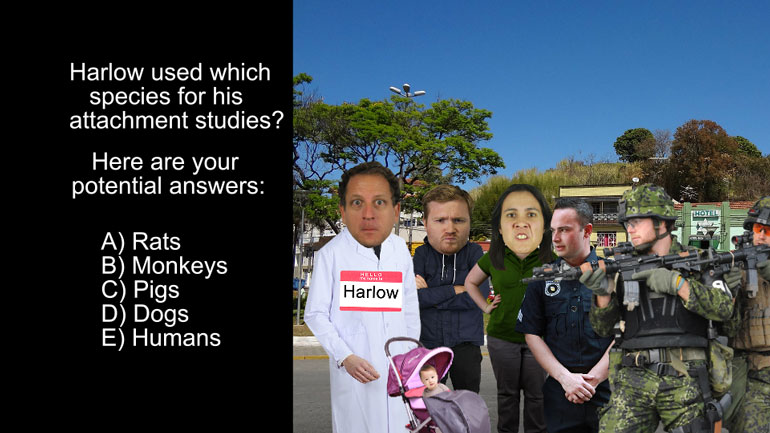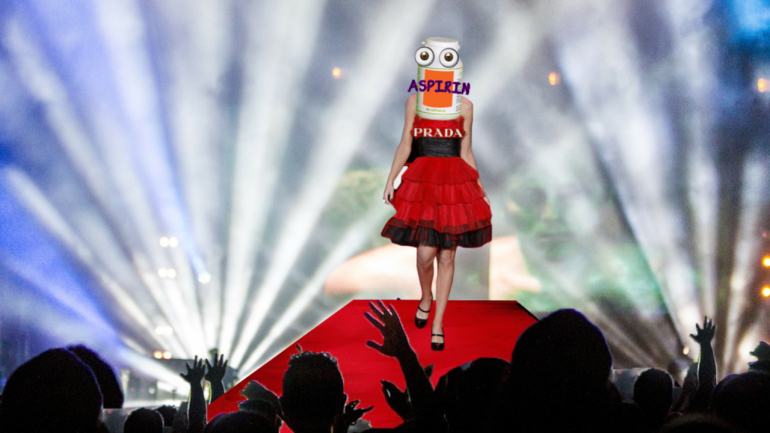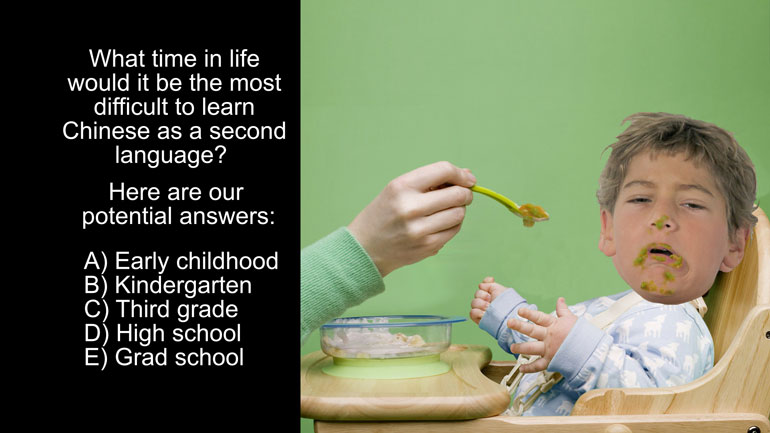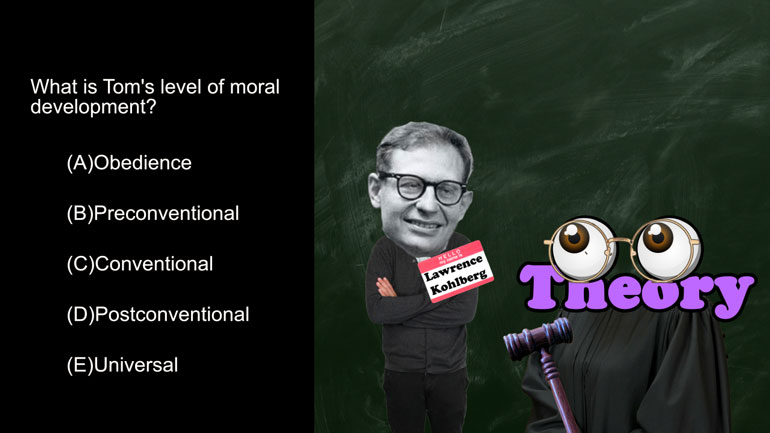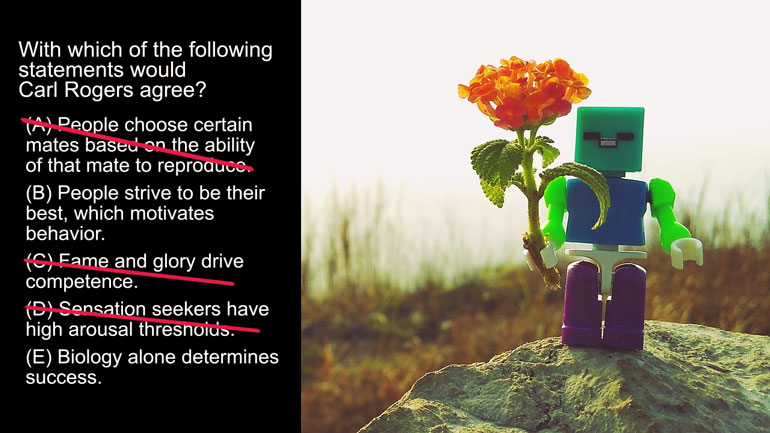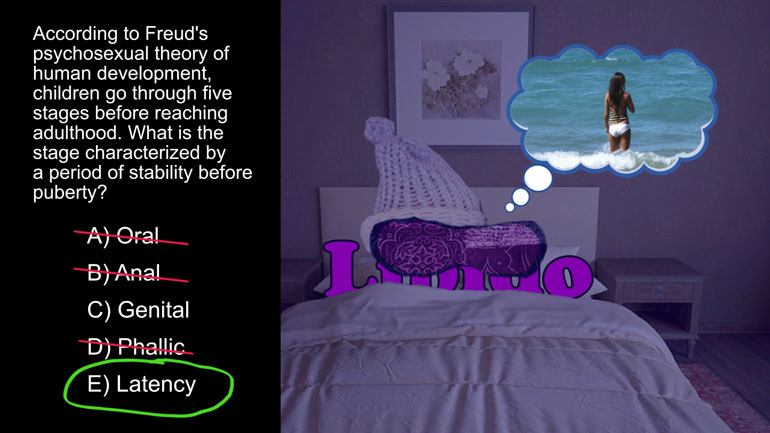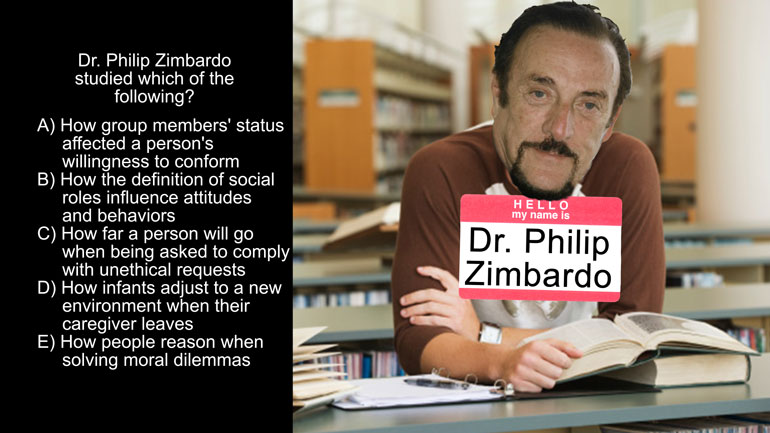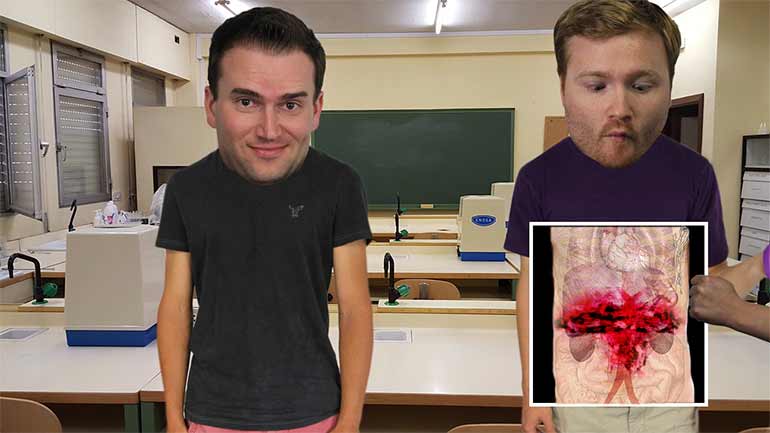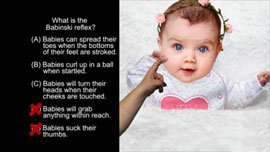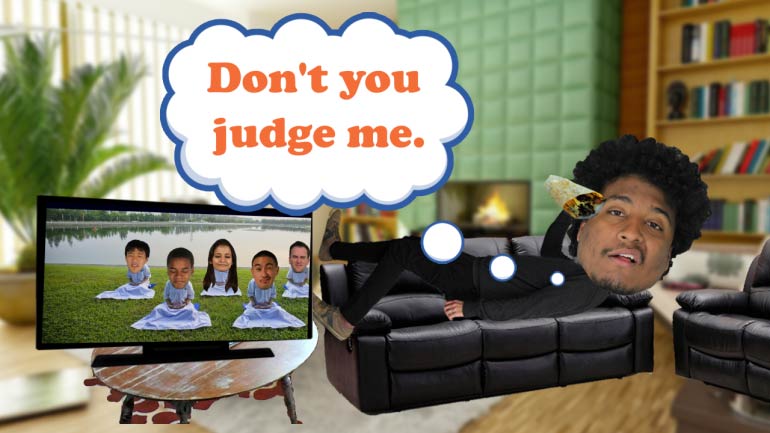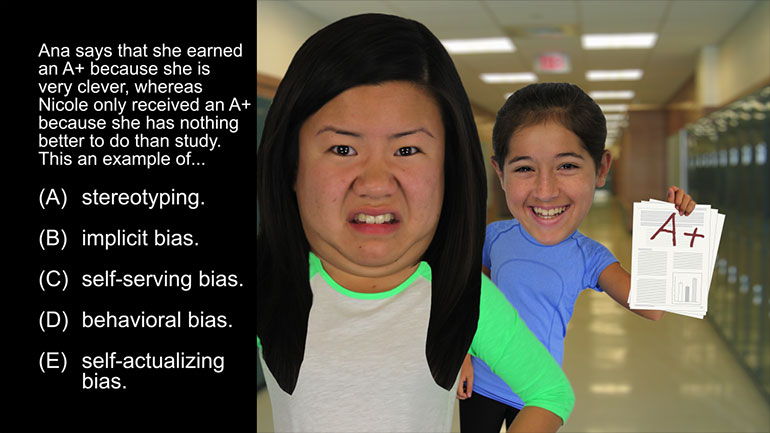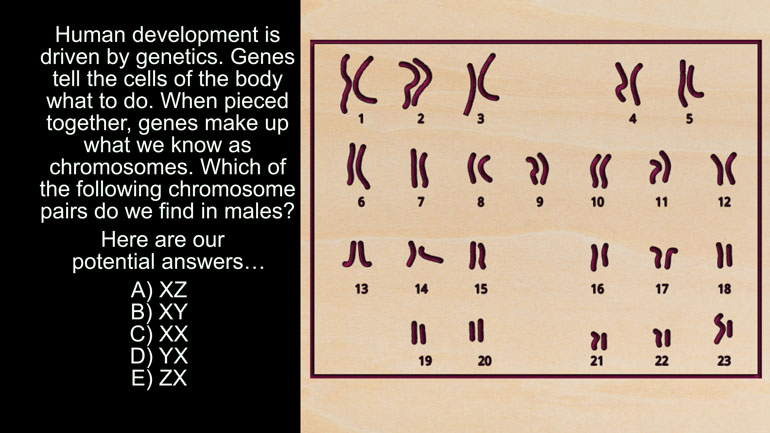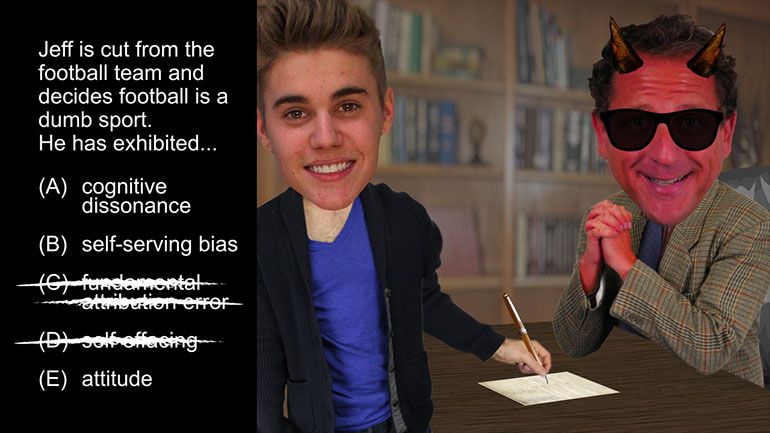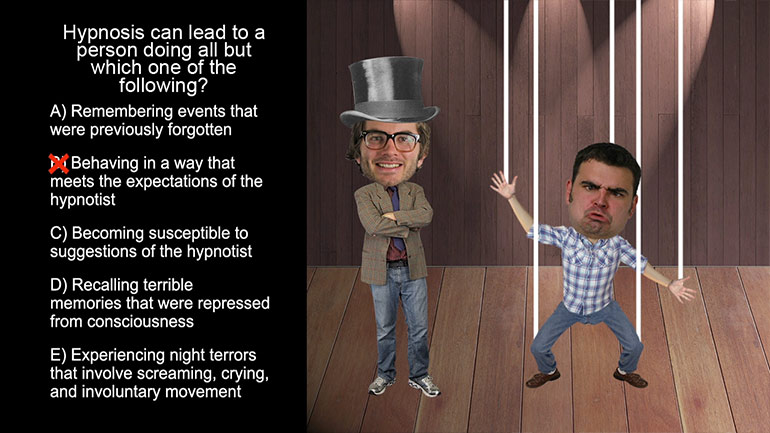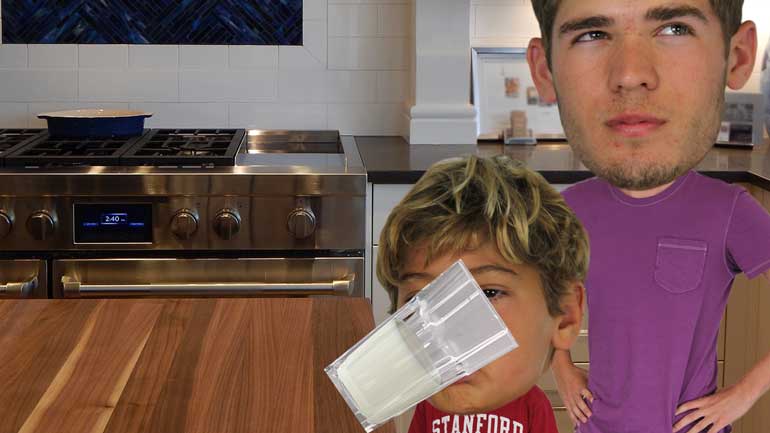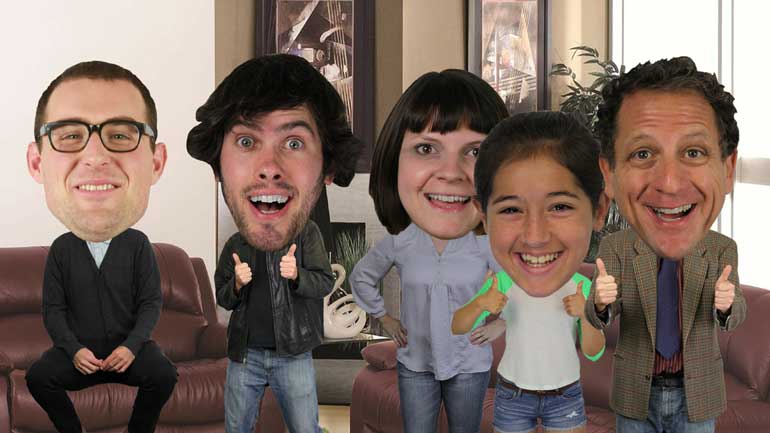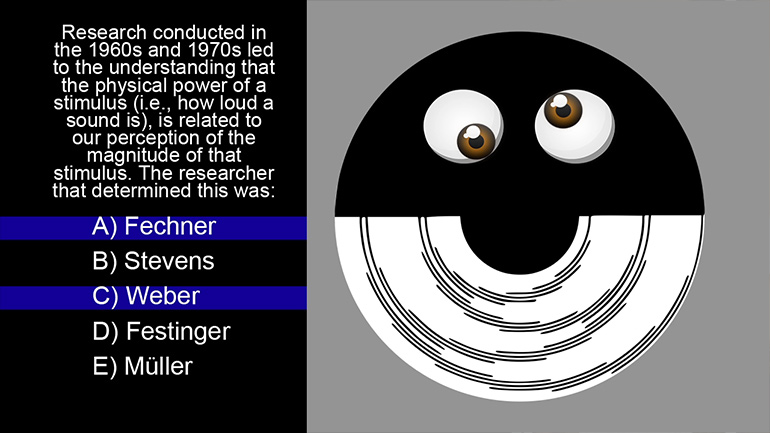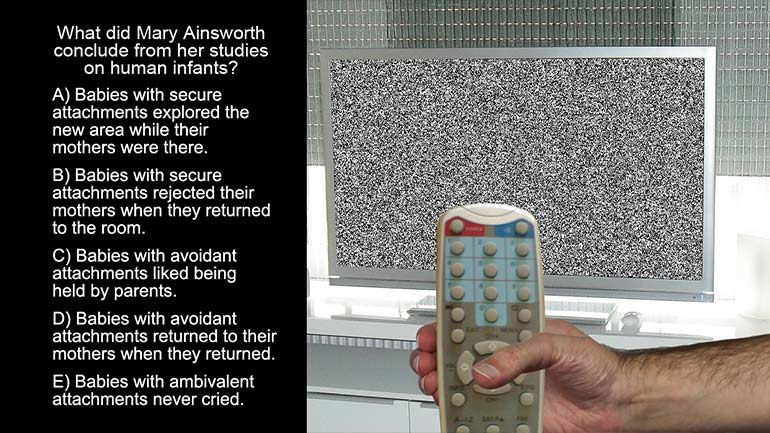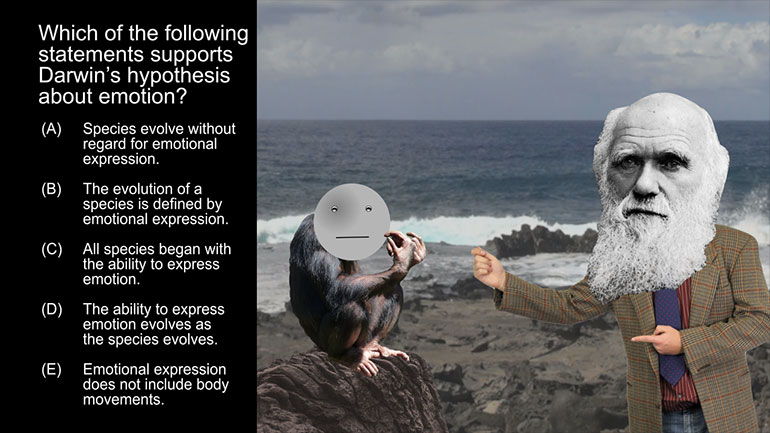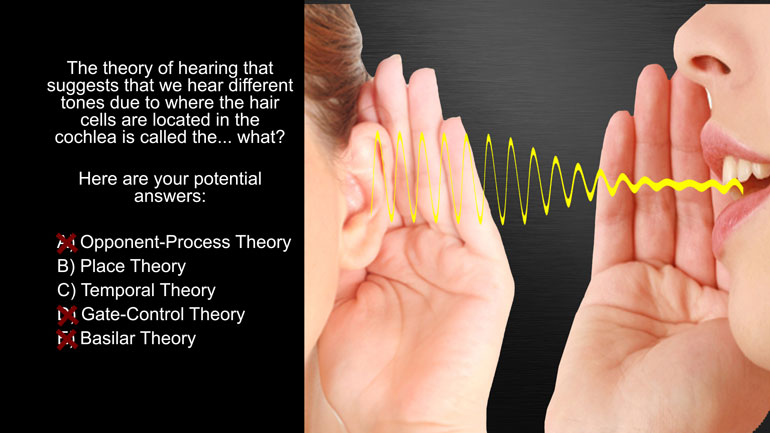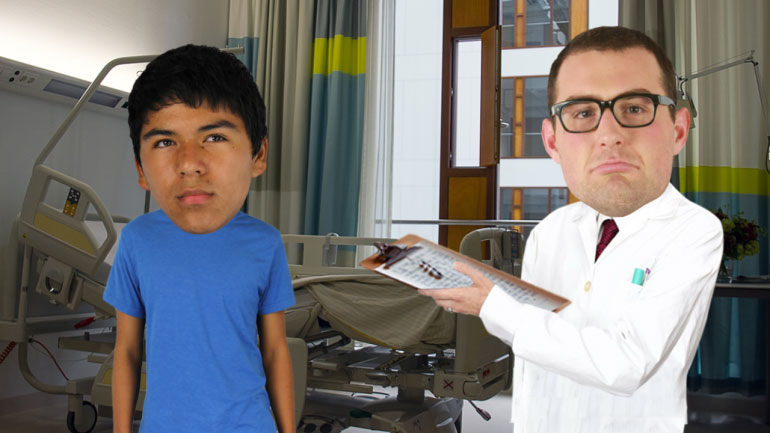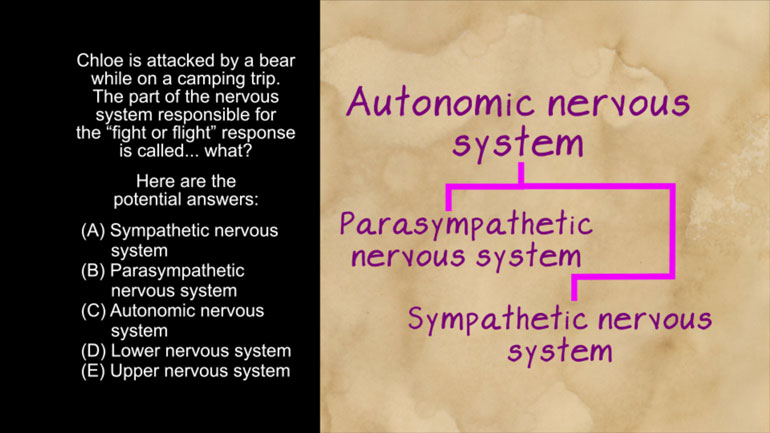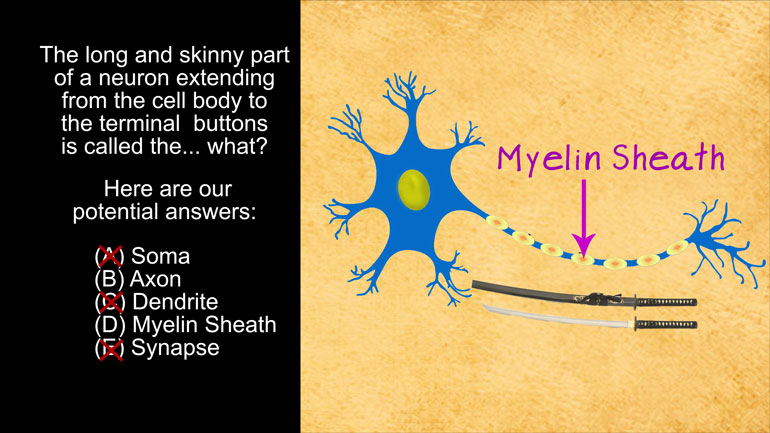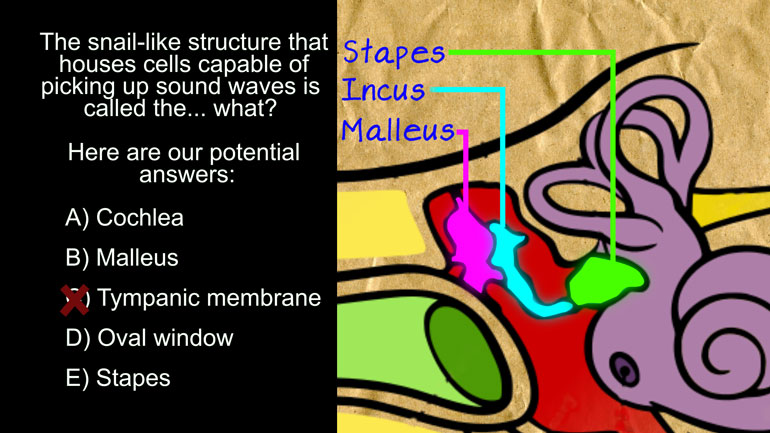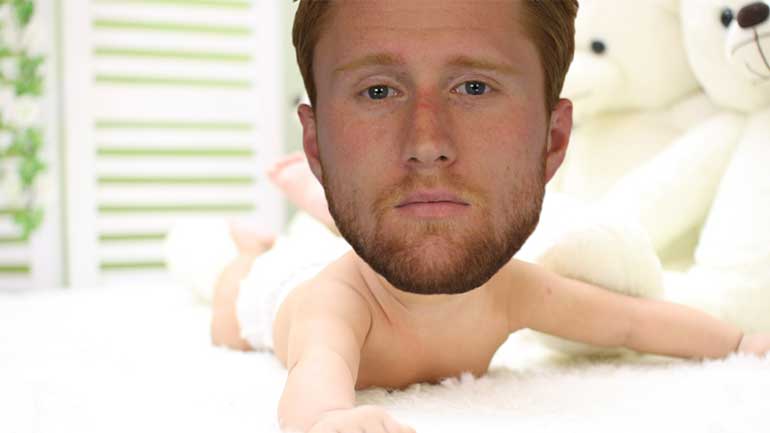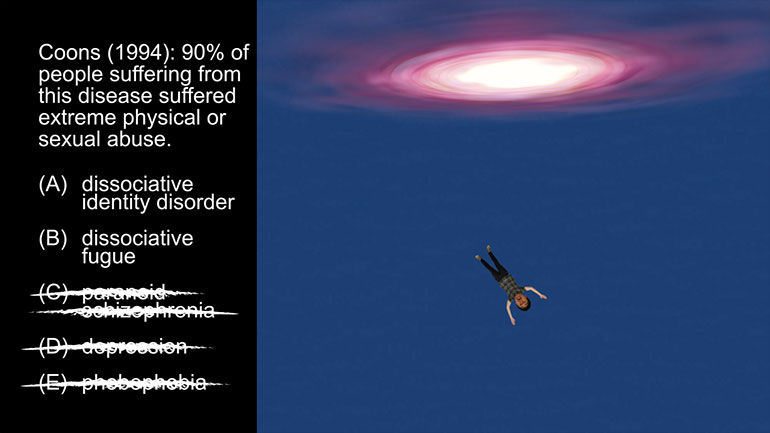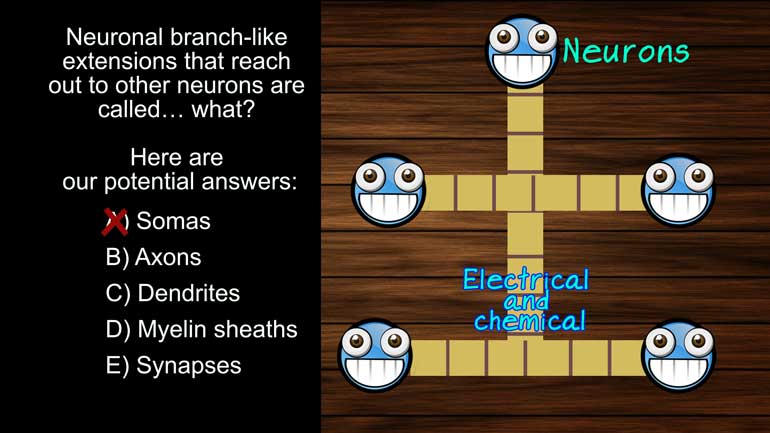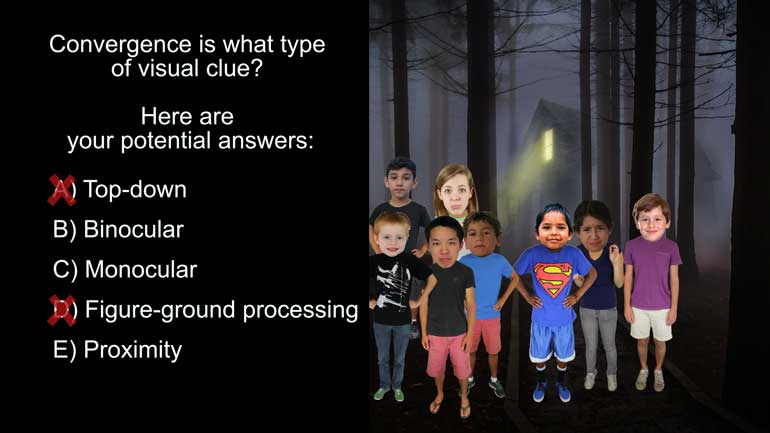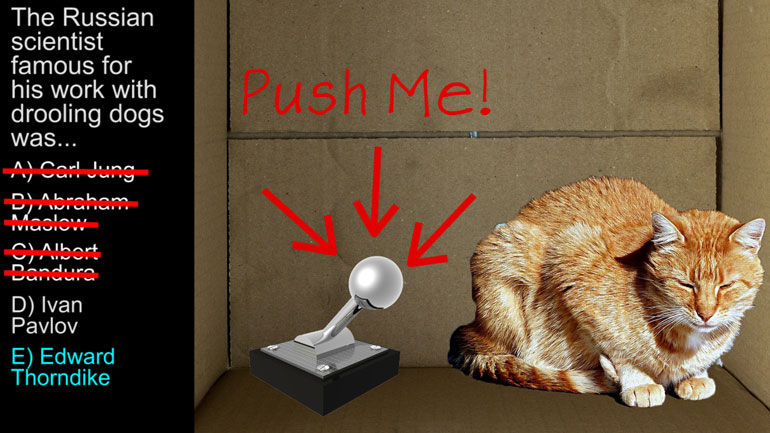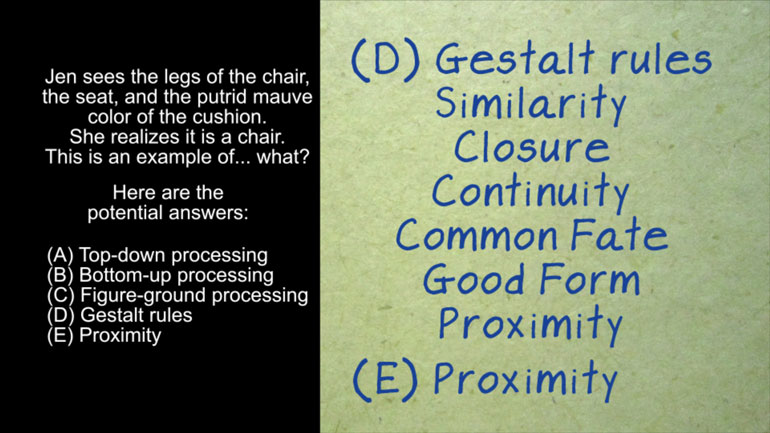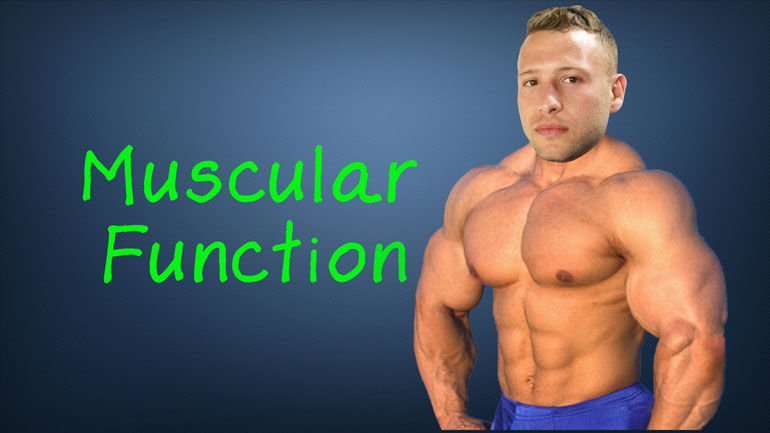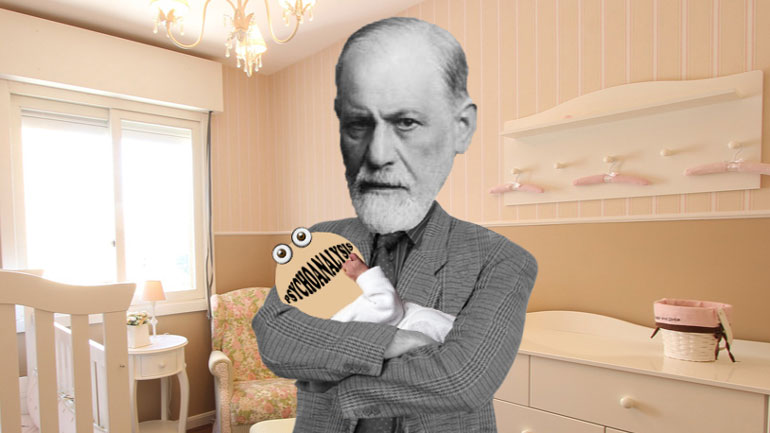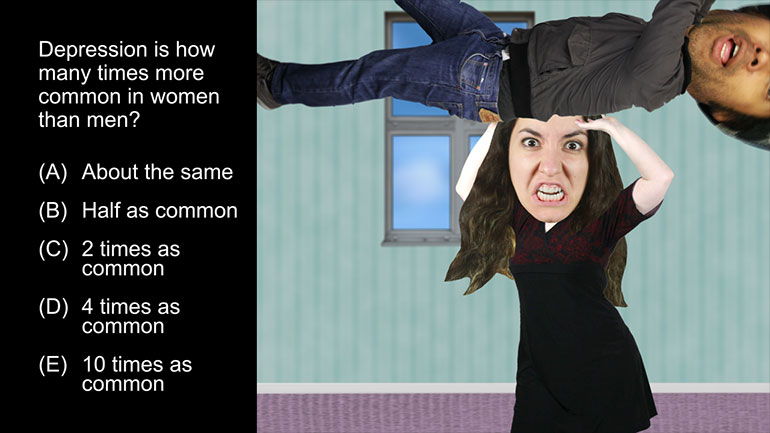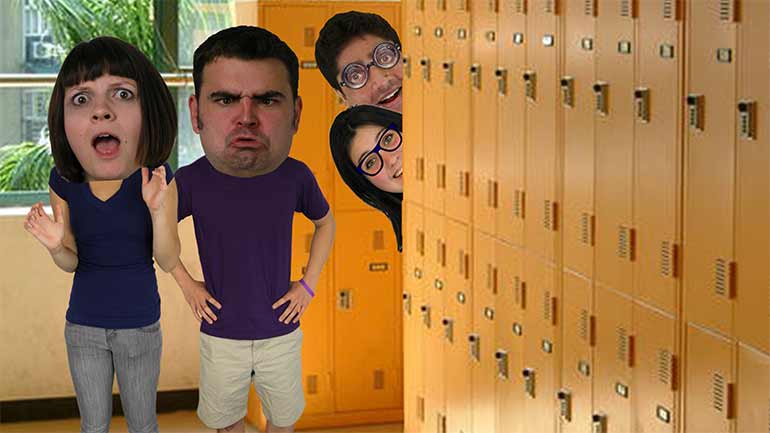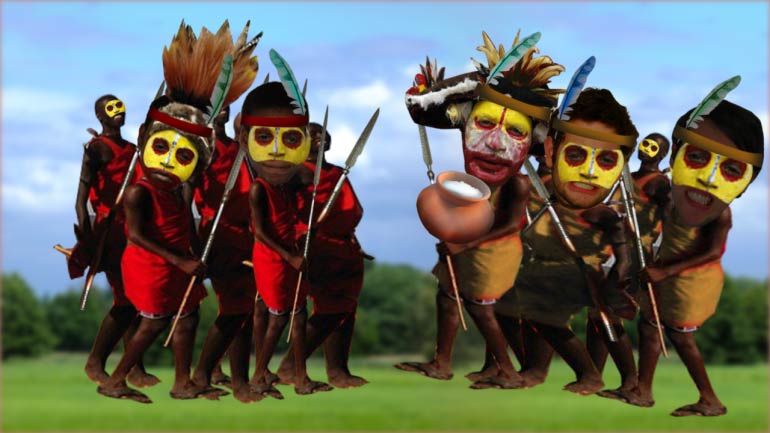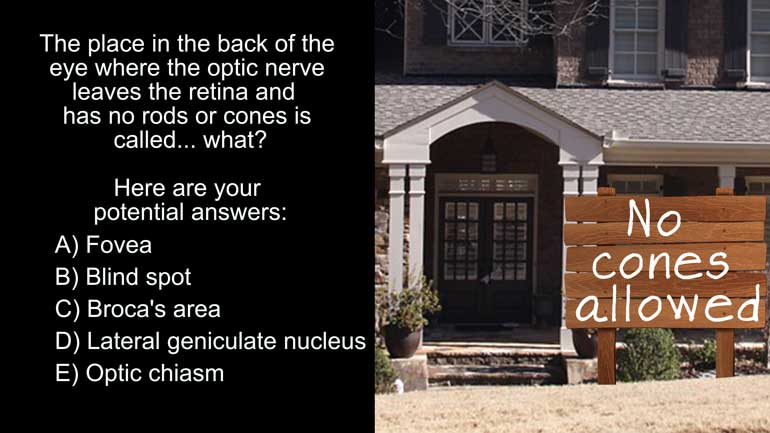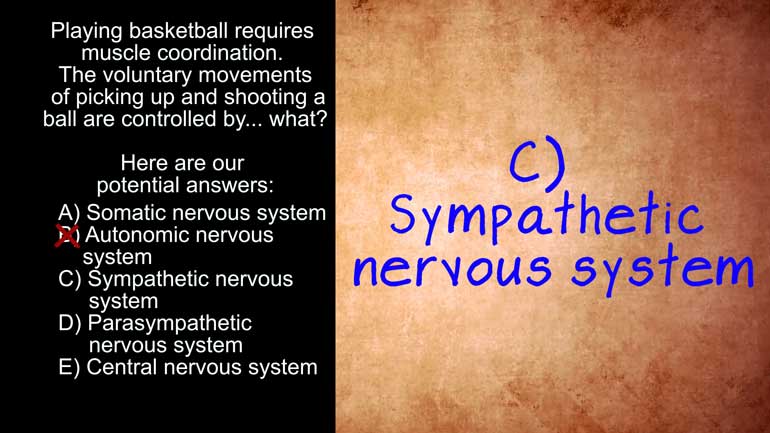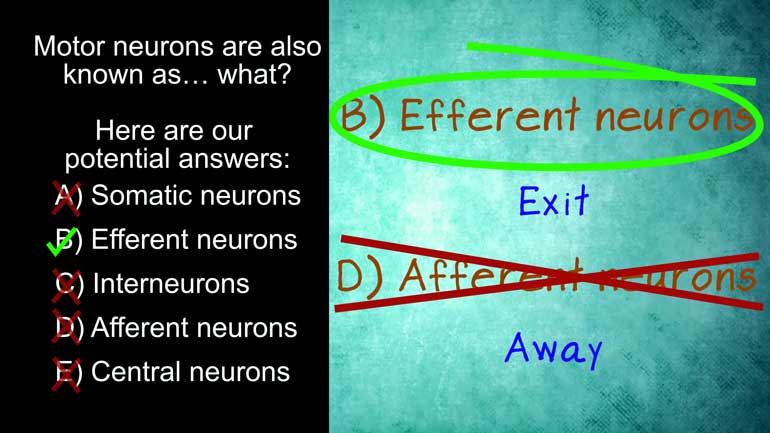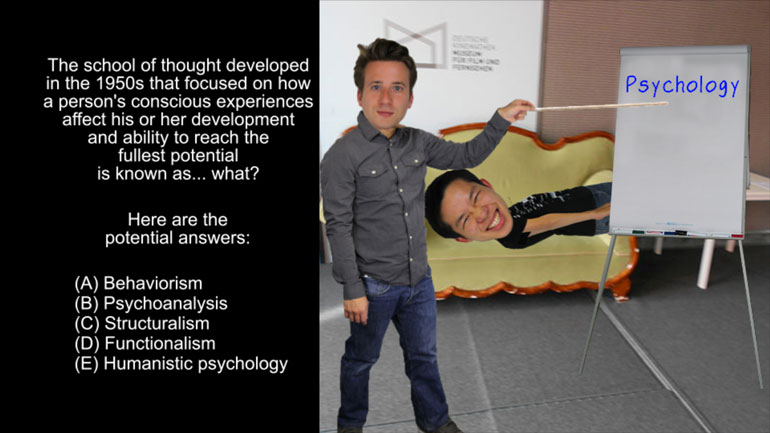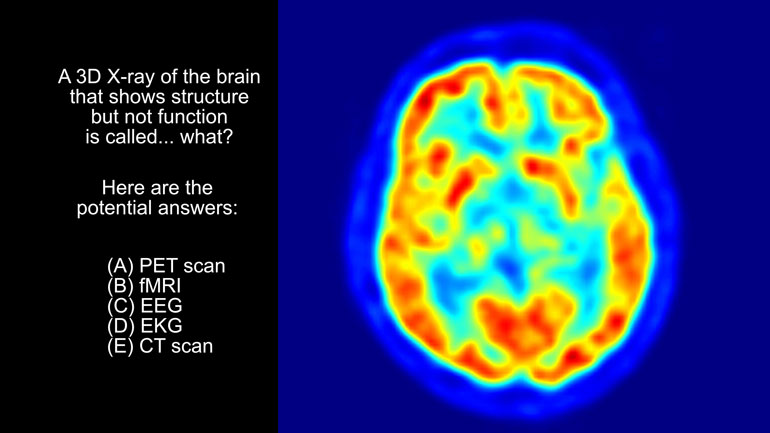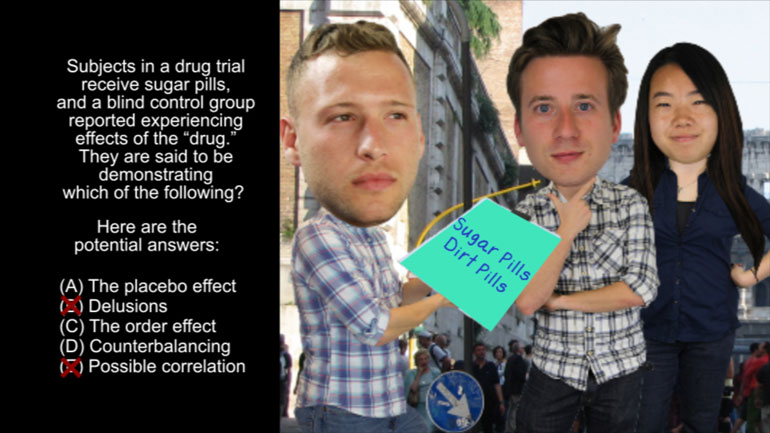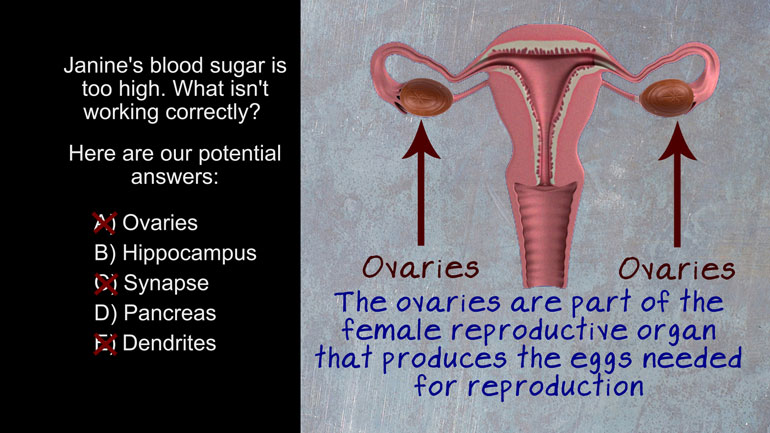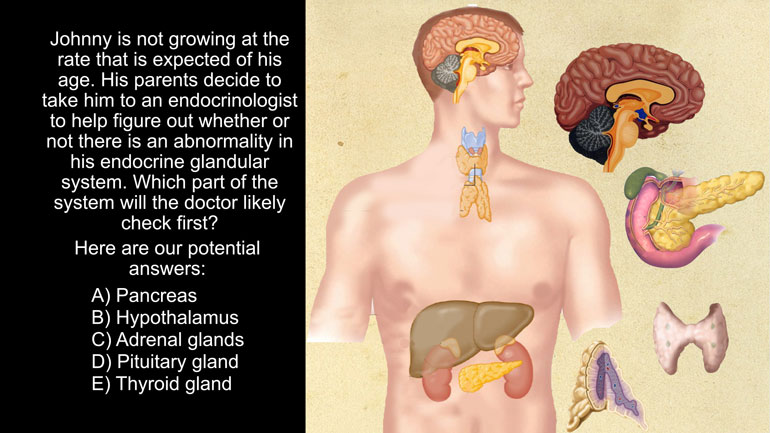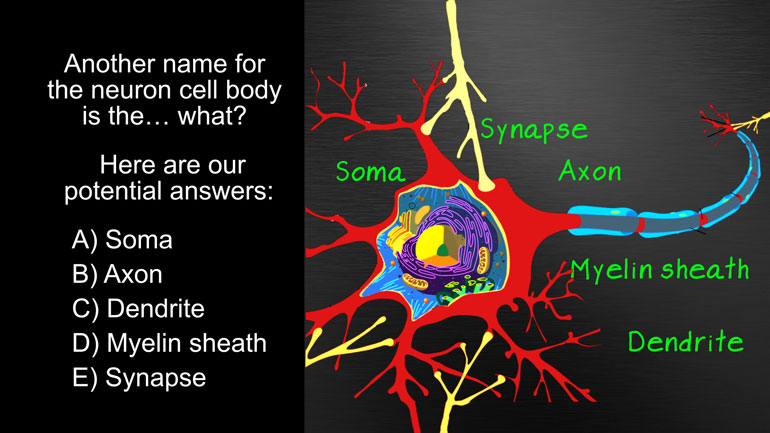ShmoopTube
Where Monty Python meets your 10th grade teacher.
Search Thousands of Shmoop Videos
AP Psychology Videos 162 videos
AP Psychology 1.1 Social Psychology. Which of the following best describes social psychology?
AP Psychology 1.1 States of Consciousness. Who conducted research on REM sleep deprivations?
AP Psychology 1.2 Cognition. Which of the following strategies would work best for generating new ideas?
AP Psychology 1.5 Testing and Individual Differences 8 Views
Share It!
Description:
AP Psychology 1.5 Testing and Individual Differences. Charles Spearman would support which of the following statements?
Transcript
- 00:00
Thank you We sneak And here's your shmoop du jour
- 00:06
brought to you by english psychologist charles spearmon And this
- 00:09
is charles swordsman And finally charles pillow mint Charles spearmon
- 00:14
would support which of the following statements and hear The
- 00:16
potential answers are eighteen All right let's look at a
Full Transcript
- 00:24
t s a t or school elastic aptitude test Well
- 00:28
it's a standardized test widely used for college admissions in
- 00:31
america and something shmoop is proudly famous for helping you
- 00:34
prepare for over an aptitude test Doesn't measure intelligence It
- 00:38
assesses and predicts one's ability to learn or do something
- 00:42
Spirit had nothing to do with the development of the
- 00:45
that honor goes to princeton's carl campbell brigham though this
- 00:49
one doesn't fit Spearmint didn't have a whole lot to
- 00:51
say about language acquisition either A notion that there are
- 00:54
optimal ages at which to learn language is described by
- 00:57
the critical period hypothesis which states that the first years
- 01:01
of life up to say age five represent the time
- 01:04
when language develops readily and far more easily than later
- 01:08
on in life This was initially proposed by neurologist penfield
- 01:11
and roberts and popularized later by linenberg But did spearmon
- 01:15
think that intelligence consisted of a plurality of abilities No
- 01:20
unlike fellow psychologist turn burden gardener have beauty Intelligence is
- 01:23
coming in multiple forms Spearmint came up with this own
- 01:26
singular measure for intelligence Which is why this has got
- 01:29
to go gardner specifically Was an advocate for the idea
- 01:32
that intelligence and its multiple forms were each to find
- 01:35
most by culture This nuanced understanding of intelligence is one
- 01:38
that came about long after the death of spearmint and
- 01:41
therefore couldn't possibly fit either Spearmon was best known for
- 01:45
his development of the general intelligence or g factor He
- 01:49
argued that intelligence was a single ability that could be
- 01:52
measured and it by testing a series of related cognitive
- 01:55
tasks Aggie factor could be a sign that spearmon believed
- 01:58
accurately reflected one's in diligence Nowadays most people refer to
- 02:02
this kind of testing is the more popular intelligence quotient
- 02:06
or like test which is too bad because g factor 00:02:09.645 --> [endTime] sounds oh so much cooler and futuristic
Related Videos
AP Psychology 2.2 Social Psychology. Which of the following was an independent variable manipulated in Asch's research?
AP Psychology 1.1 Personality. According to Freud, these three parts of personality are constantly in conflict.
AP Psychology 1.1 Sensation and Perception. The process by which the brain can turn sensory stimuli from the outside world into electrical signals...
AP Psychology 1.1 Social Psychology. Which of the following best describes social psychology?
AP Psychology 1.1 States of Consciousness. Who conducted research on REM sleep deprivations?



